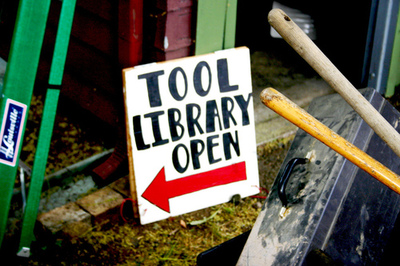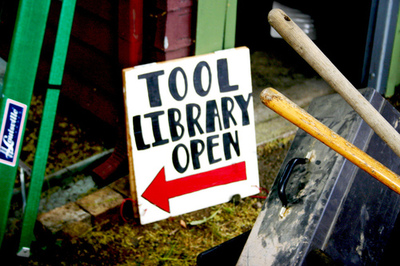Dumps, landfills, even oceans–sites the world over are covered in the collective detritus of our go-go consumer culture. Yesterday’s hottest gadgets and plastic trinkets litter the planet. Some companies are working to make their waste more environmentally-friendly, and there have been successful efforts educating the public about the dangers of eWaste, but those initiatives don’t address our deeper, habitual behavior of consumption. We need to rethink our consumption patterns, and reconsider what we do with objects we no longer want or need.

Many of the tenets of unconsumption are simple, common-sense maxims that would have seemed second-nature to our parents or grandparents, who would go to a cobbler to fix a shoe as opposed to buying a shiny-and-new synthetic replacement. But in this era of pitched hyper-consumption, it’s crucial to rediscover these maxims of sustainability–for the environment, and perhaps for our own peace of mind.
On the Unconsumption blog, Walker explains:
Consumption is a word used to describe acts of acquisition – generally, the acquisition of things, in exchange for money.
Unconsumption is a word used to describe everything that happens after an act of acquisition.
Unconsumption is an invisible badge.
Unconsumption means the accomplishment of properly recycling your old cellphone, rather than the guilt of letting it sit in a drawer.
Unconsumption means the thrill of finding a new use for something that you were about to throw away.
Unconsumption means the pleasure of using a service like Freecycle (or Craigslist or Goodwill) to find a new home for the functioning VCR you just replaced, rather than throwing it in the garbage.
Unconsumption means enjoying the things you own to the fullest – not just at the moment of acquisition.
Unconsumption means the pleasure of using a pair of sneakers until they are truly worn out – as opposed to the nagging feeling of defeat when they simply go out of style.
Unconsumption means feeling good about the simple act of turning off the lights when you leave the room.
To put it simply, it’s a practical way of approaching conscious consumption. Unconsumption is thoroughly contemporary: it’s not advocating a utopian return to an artisan economy, or some Luddite retreat from modern society. It recognizes that we exist in a tech-driven economy driven by ephemeral products. Instead, it urges individuals to be more conscious about the types of consumption they are engaging in.
This isn’t a pitched anti-consumerist ideology; this is in no way an activist movement. It’s advocating a personal change in behavior, and fails to affect any institutional changes. In fact, the unconsumption un-manifesto acknowledges that it is unconcerned with ideology:
Unconsumption is not about the rejection of things, or the demonization of things. It’s not a bunch of rules.Unconsumption is an idea, a set of behaviors, a way of thinking about consumption itself from a new perspective.
Unconsumption is free.
We can get a lot out of recalibrating our habits to get more value and use from the objects we buy and use. It may not affect massive systemic change, but if adopted by enough people, these shifts in behavior have both environmental and personal economic benefit. If a viral Internet movement can encourage people to reconsider and change how they consume, I see that as a net win.
Interested in becoming an unconsumer, to get more use and value out of the things you already own? Resources can be found on this page on Walker’s Murketing blog, and the Unconsumption wiki, which is under construction. If you’re already living by these maxims, and have your own tips or ideas, Walker has an invitation open for additional contributors to the Unconsumption blog and wiki. And if you’re looking for an easy, community-building way to start practicing unconsumption, there are freecycle boards for most communities.
Photo from the Portand Tool Library via the Unconsumption blog









